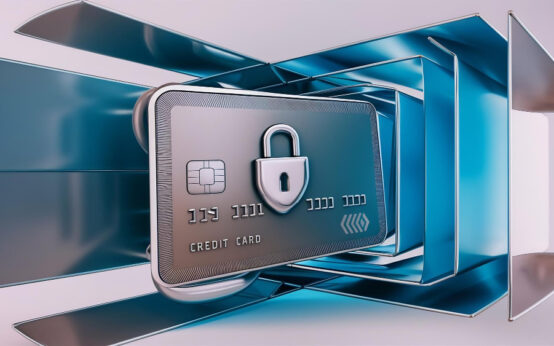Feeling overwhelmed by credit card debt? Learning how to avoid credit card debt is crucial for financial health. In this guide, you’ll discover essential strategies to manage your spending habits, create an effective budget, and wisely use credit to keep debt at bay. By adopting these practices, you can build a secure financial future and avoid the pitfalls of excessive credit card debt.
Understand Your Spending Habits
Analyzing your spending patterns is crucial if you want to avoid credit card debt. Start by reviewing your bank statements and categorizing expenditures to pinpoint areas where you can cut back. Identify needs versus wants. By knowing where your money goes, you can make informed decisions and set realistic financial goals.
Tracking every expense helps you see the big picture and avoid unnecessary purchases. Use apps or keep a written log to monitor your daily spending habits. Regularly evaluating your expenses can prevent impulse buys and help maintain a balanced budget.
Understanding your spending triggers is also essential. Are you more likely to spend when you’re stressed or emotional? Recognizing these triggers can help you develop strategies to avoid them. For instance, if you’re prone to retail therapy when unhappy, find alternative coping mechanisms like exercise or hobbies.
Create and Stick to a Budget

Creating and sticking to a budget is crucial for avoiding credit card debt. Begin by listing all your sources of income and your fixed monthly expenses like rent, utilities, and insurance. Then, categorize your variable expenses such as groceries, entertainment, and dining out. Assign a realistic amount to each category and ensure your total expenses don’t exceed your income.
Track your spending
consistently to make sure you’re within your budget. Utilize budgeting apps or spreadsheets to help you stay organized. Adjust your budget as your financial situation changes, such as receiving a raise or encountering unexpected expenses.
Regularly review your budget to identify areas where you can cut back on spending. Small changes, like brewing coffee at home instead of buying it or canceling unused subscriptions, can add up over time and help you stay on track. Staying disciplined and committed to your budget will greatly reduce your chances of accumulating credit card debt.
A well-planned budget allows you to clearly see where your money is going and helps you make informed financial decisions. By controlling your spending and prioritizing essential expenses, you’ll be better prepared to avoid unnecessary debt.
Pay More Than the Minimum Payment
One effective strategy to avoid credit card debt is to pay more than the minimum payment. When you only pay the minimum, you extend the repayment period and accumulate more interest over time. This makes it harder to get out of debt. Instead, aim to pay as much as you can afford each month. By reducing your principal balance quicker, you will also lower the interest you owe.
Additionally, making larger payments can significantly improve your credit score. It demonstrates to lenders that you are responsible with credit. Your credit utilization rate—the ratio of your outstanding credit card balances to your credit limits—will decrease, positively affecting your credit report.
If paying more than the minimum seems challenging, review your budget for areas where you can cut costs. Apply these savings towards your credit card payments. Over time, even small increments can make a big impact on reducing your debt.
Remember, the quicker you pay off your credit balance, the less you will have to pay in interest, and the more financial freedom you will gain.
Use Credit Cards Wisely

The proper use of credit cards can play a crucial role in avoiding debt. When used responsibly, credit cards can offer numerous benefits, such as reward points, cashback, and better purchase protection. To use credit cards wisely, one must first understand the terms and conditions associated with the account. This includes knowing the interest rates, annual fees, and any other charges that might apply.
It’s also essential to monitor your credit card usage regularly. Keep track of all transactions and ensure that they are within your budget. This way, you can avoid overspending and falling into debt. Setting up alerts for due dates and spending limits can be beneficial in managing your card effectively.
Avoid carrying a balance from month to month. If you can, pay off the entire balance to prevent high-interest charges. In case paying off the full balance is not possible, always aim to pay more than the minimum payment required. This strategy reduces the principal amount and minimizes the interest accrued.
Be mindful of promotional offers. While introductory 0% APR offers and balance transfer deals can be tempting, ensure you understand the terms and how to use them to your advantage without incurring additional debt. Lastly, consider limiting the number of credit cards you own to avoid unnecessary temptation and maintaining control over your finances.
Seek Professional Financial Advice
Seek Professional Financial Advice
Consulting with a financial advisor can provide personalized guidance that aligns with your financial goals. A professional can help you develop a realistic strategy to manage and reduce credit card debt effectively. They can offer insights into debt consolidation, refinancing options, and other solutions you might not be aware of.
Financial advisors have access to a wide range of tools and resources that can help you understand your financial situation better. They can assist in creating a plan that prioritizes your spending, savings, and debt repayment. By seeking professional advice, you gain an objective perspective on your finances.
Moreover, a financial advisor can guide you through the complexities of interest rates and repayment schedules. They can negotiate with creditors on your behalf to lower interest rates or set up more favorable payment terms. This can significantly reduce the amount you pay each month, speeding up your debt repayment process.
Remember, while seeking professional advice might come with a cost, the benefits often outweigh the fees. By leveraging their expertise, you can avoid common pitfalls and make informed financial decisions that support long-term financial health.



 Best credit cards secured: your path to a stronger credit history <p style='text-transform:none; line-height:20px !important; font-size:16px; font-weight:normal; color:#424242; margin: 0px; margin-top:10px;'>They offer a smart way to show lenders you’re serious about managing your finances.</p>
Best credit cards secured: your path to a stronger credit history <p style='text-transform:none; line-height:20px !important; font-size:16px; font-weight:normal; color:#424242; margin: 0px; margin-top:10px;'>They offer a smart way to show lenders you’re serious about managing your finances.</p>  The best credit cards for lounge access: your key to premium airport comfort <p style='text-transform:none; line-height:20px !important; font-size:16px; font-weight:normal; color:#424242; margin: 0px; margin-top:10px;'>With these cards, you have exclusive access to lounges, offering comfort while you wait for your flight.</p>
The best credit cards for lounge access: your key to premium airport comfort <p style='text-transform:none; line-height:20px !important; font-size:16px; font-weight:normal; color:#424242; margin: 0px; margin-top:10px;'>With these cards, you have exclusive access to lounges, offering comfort while you wait for your flight.</p>  Safe, simple, and fun: discover the best debit cards for kids <p style='text-transform:none; line-height:20px !important; font-size:16px; font-weight:normal; color:#424242; margin: 0px; margin-top:10px;'>These cards offer the flexibility and convenience that both parents and kids need.</p>
Safe, simple, and fun: discover the best debit cards for kids <p style='text-transform:none; line-height:20px !important; font-size:16px; font-weight:normal; color:#424242; margin: 0px; margin-top:10px;'>These cards offer the flexibility and convenience that both parents and kids need.</p>